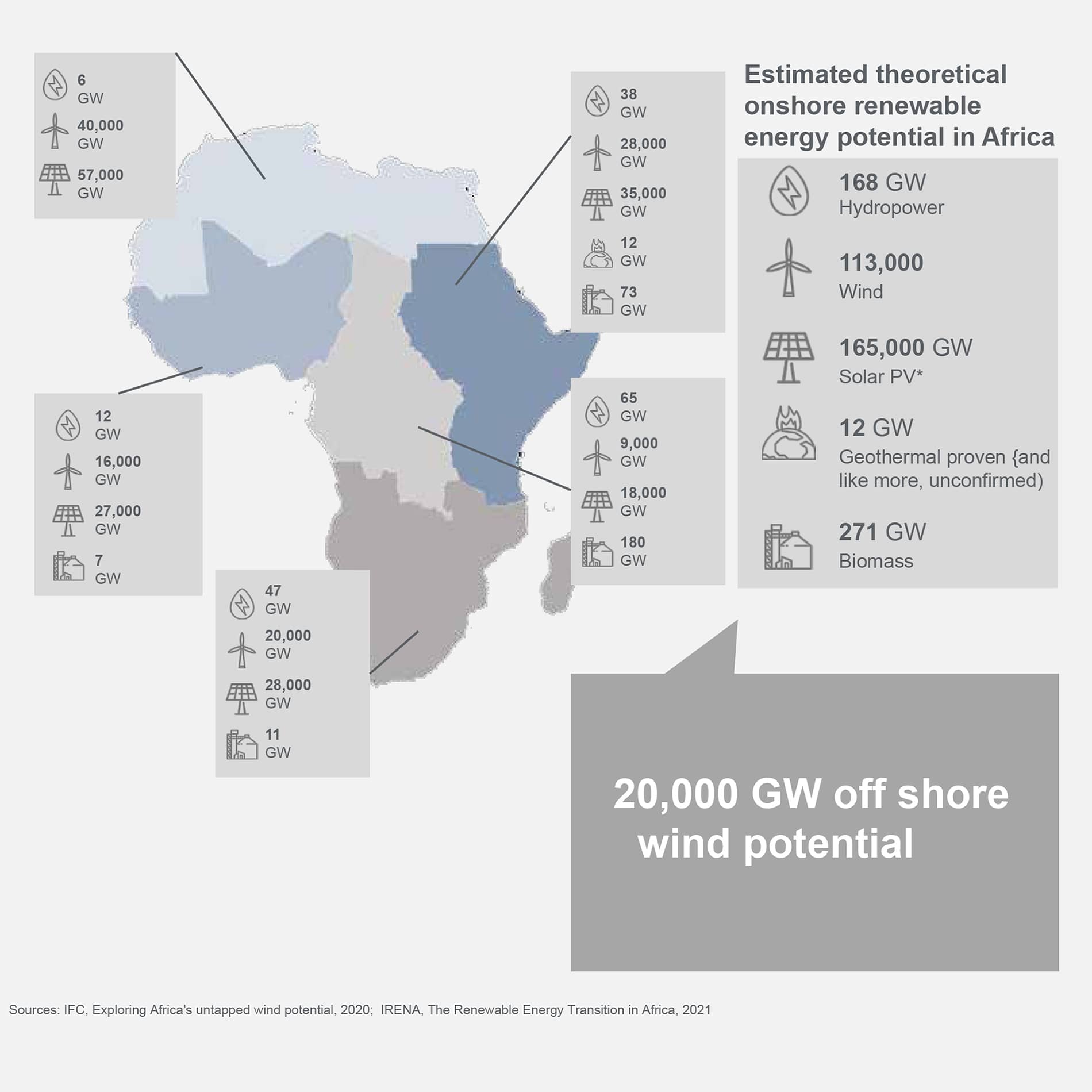At the same time, Africa has high energy poverty: Nearly 600 million Africans have no access to electricity, an additional 150 million Africans have unreliable electricity access and ~900 million Africans have no access to clean cooking solutions. The regulatory status quo and cash deprived utility companies make power relatively expensive in Africa.
The most climate-friendly scenario to reach universal energy access in Africa is also the most cost-effective, but it does require more upfront investment. Installing renewable energy production (and storage to tackle intermittency) already is cheaper than adding fossil-fuel powered capacity. Africa can provide energy access for all by 2030 with 30% lower costs per kWh, reducing total emissions related to energy generation by ~80%, and emissions per MWh by well over 90%, (all compared to 2040 stated policy), according to the UNFCCC energy pathways report. This does require a new approach to investment. While the overall costs are lower, the green scenario requires 40% higher upfront investment than the current stated policy pathway and 18% higher than the pathway that keeps emissions constant.

